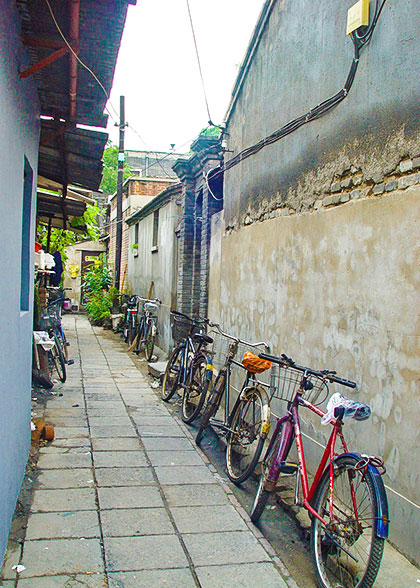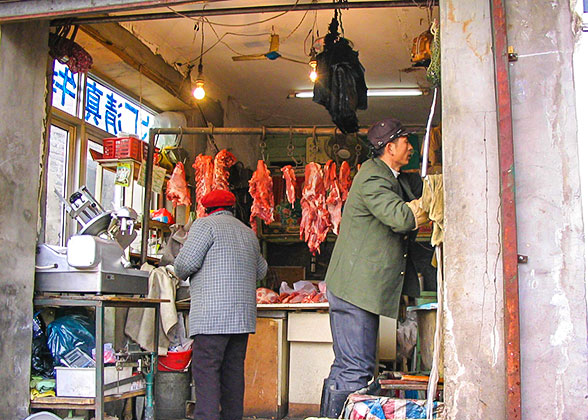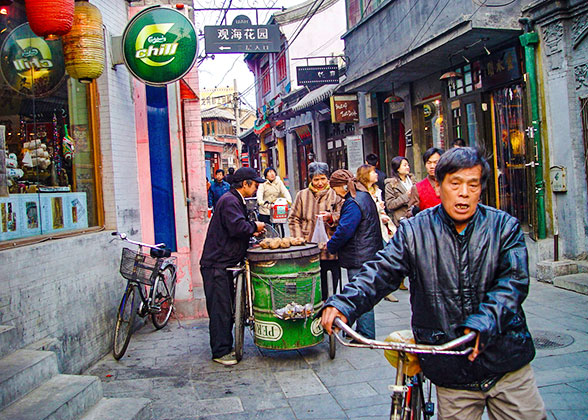Hutong Culture
The names of them are all-embracing and various and relate to their location, origin or history, such as Lumicang, Fuxue, and Gongyuan hutongs, which were named by official organizations. Those examples named by craftsmen and ordinary people include: 'earthenware pot Liu (now Dashaguo) Hutong', maybe there once lived a Mr. Liu who sold earthenware pots. Those who were named by their market trade include Xianyu Kou Hutong (Fish street), for it once was the place where fish was sold. There are also those which bear the names of horses and mules because these animals were once traded there. Some take their name from special landmarks, such as Stone Tiger, Iron Lion and Cypress hutongs. Their names are regarded as important materials when researching Beijing culture.
 |
People are pleased with their easy life in Siheyuan (the courtyard distributed orderly). They live a peaceful and harmonious life in these small "boxes", away from the hustle and bustle of the streets outside. Their daily needs could be fully satisfied by hawkers who sold vegetables, eggs, fruits, and snacks. In the past, they could even get their hair cut by the itinerant barbers without walking out of their neighbourhood to find a barber shop. The winding and narrow Hutongs were heaven for children playing games. They would have played rubber-band skipping, kicking shuttlecocks, and hide-and-seek. Even in modern times, young boys get together and hold football matches in these narrow lanes. Those who live in them love their way of life so much that it is often described by the Chinese as a culture of happiness and harmony.
However, the love of this way of life can become a burden for some Hutong-dwellers. Because many people have never known anything outside, they can be reluctant to move house. People have been known to live in the same Hutong for decades, until the foundations are too weak to hold the weight of the house and until the roof allows rain in. But for these people, their house still had value because they loved the way of life that had lived there. In this insular environment, people live simply and happily but are unwilling to change.
 |  |
Further Reading:
Top 10 Cool Things to Do in Beijing for Youngsters
8 Interesting Places in Beijing You May Not Know